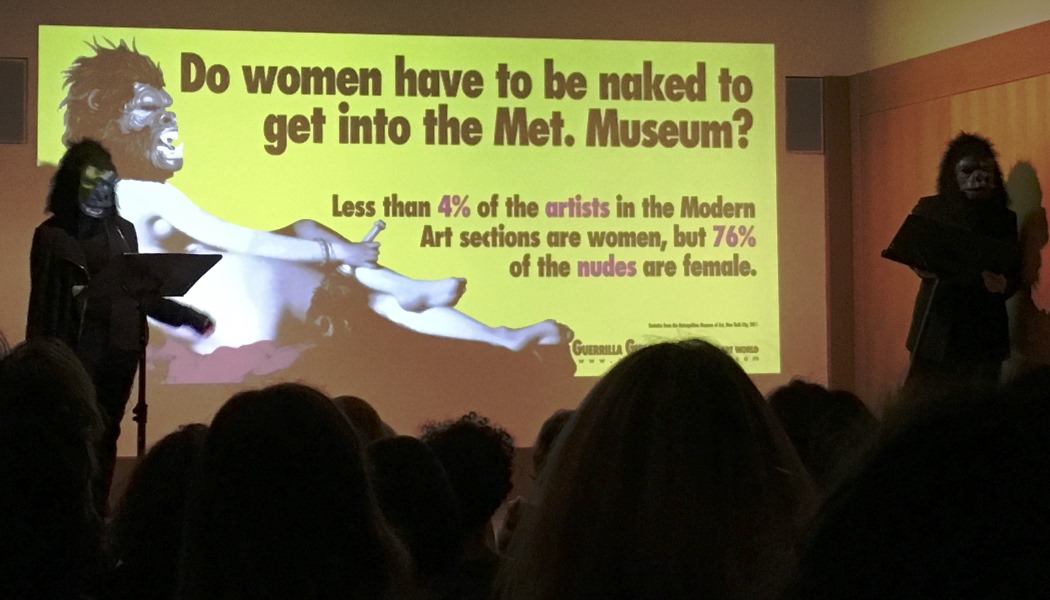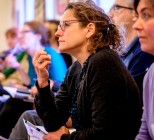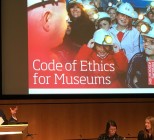The Guerrilla Girls are an American feminist collective devoted to fighting discrimination, sexism, and corruption within the art world and beyond whilst maintaining anonymity through donning their gorilla guises and using artist pseudonyms adapted from iconic artists. Two of the founding Guerrilla Girls, Frida Kahlo and Käthe Kollwitz, recently strutted over to London to present an illustrated lecture about their ongoing activism. The event attracted a packed auditorium of over 100 audience members. Kahlo and Kollwitz made their points intelligently with measured wit, charisma and charm to great affect whist showcasing the impact of their iconoclastic billboards, posters and animations, old and new.
The event coincided with their new exhibition ‘Guerrilla Girls: Is it even worse in Europe?’ now showing at the Whitechapel Gallery until March 5 2017.
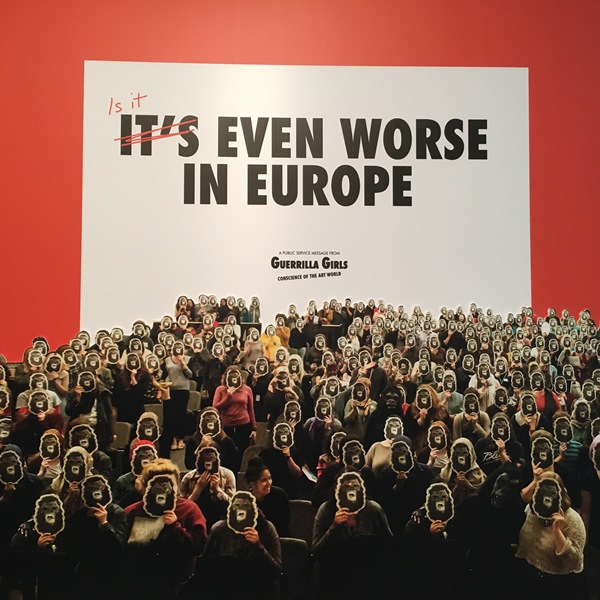
The Guerrilla Girls claim that by focusing on the understory, the subtext, the overlooked and the downright unfair, the exhibition becomes a tool to help determine to what extent museums today are presenting a diverse history of contemporary art or the history of money and power? The Guerrilla Girls approach to address this question was to wrote to 383 European museum directors during the summer of 2016, inviting them to respond to fourteen questions about diversity. Only a quarter of museums had the courage or time to respond to their questionnaire. Some directors sent back typed submissions whilst and others returned them with hand-written responses containing thought-provoking comments and statistics. You wouldn’t think an exhibition that centred on facts and figures could be so engrossing – there are glimmers of progress and hope but overall the findings are pretty damning.
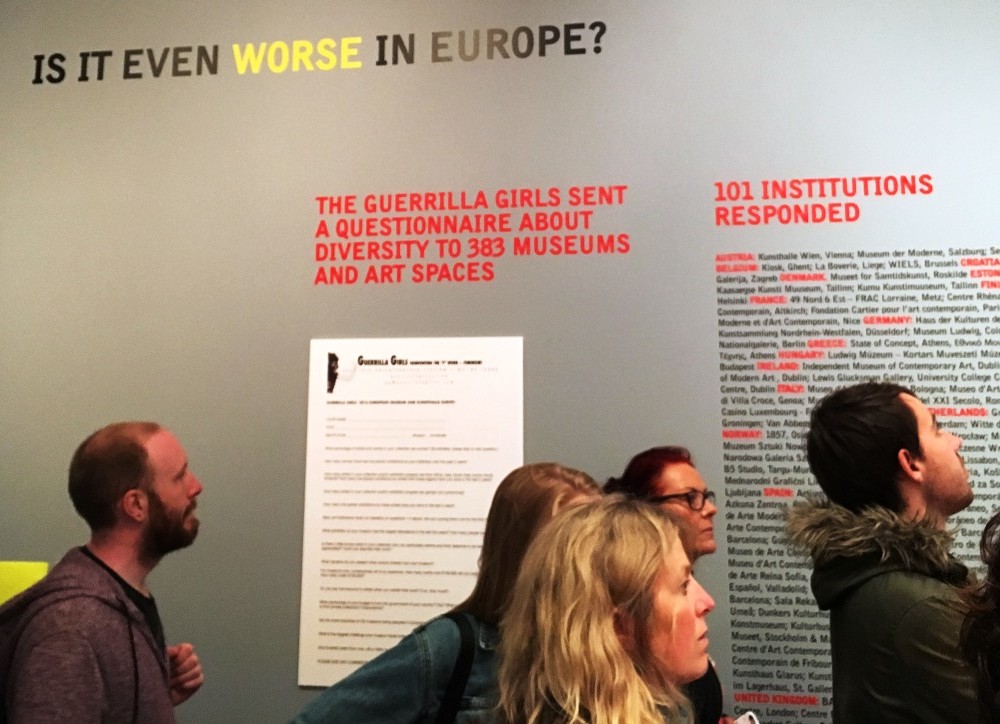
Enlarged copies of every completed questionnaire cover the gallery wall which are overlaid with bold graphics that digest the findings with a humorous twist. Visitors can discover which museums are doing best/worst at representing women in their collection as well as digesting some juicy nuggets about what is keeping museum directors up at night. Compendiums of all the completed questionnaires are available for closer inspection in the gallery. The responses range from genuinely soul-searching right through to the downright flippant and defensive: “It is not the gender that makes a good artist. It is TALENT”, insists Dakis Joannou, the director of DESTE Foundation for contemporary art in Athens.
Mischievously situated on the floor is a full list of the museums that did not bother to respond to the questionnaire, which visitors are invited to trample on at their leisure. Among those that did not reply include the South Bank Centre and Hayward Gallery.
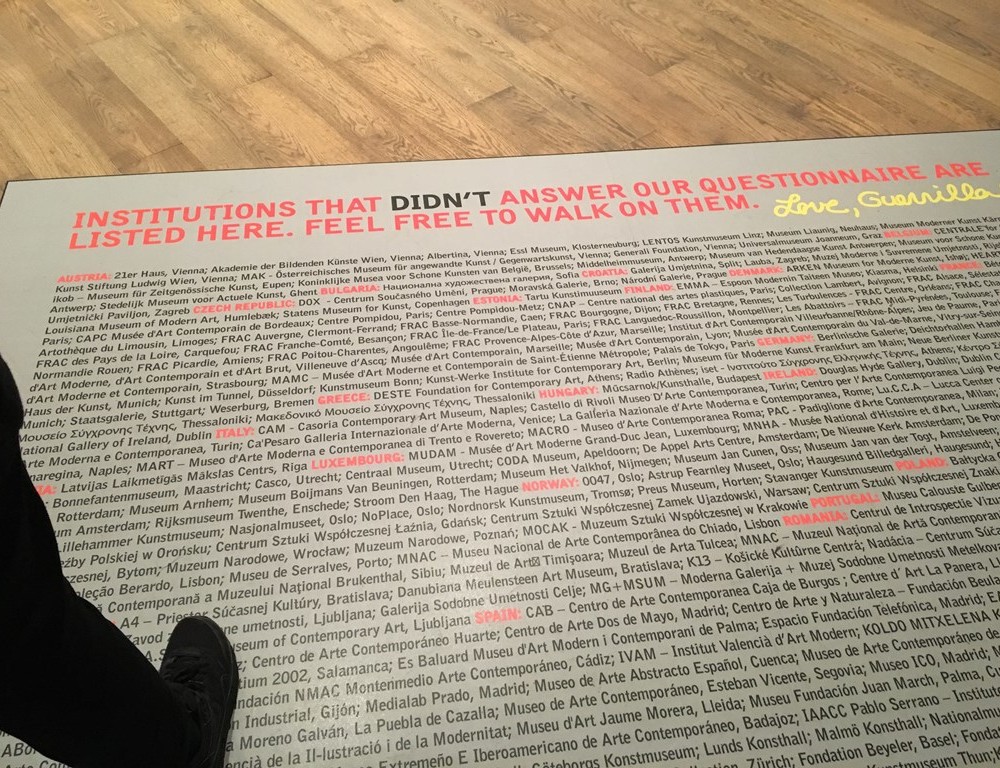
The key nub of the exhibition is clear: “unless museums and Kunsthallen show art as diverse as the cultures they claim to represent, they’re not showing the history of art, they’re just preserving the history of wealth and power”, stated the Guerilla Girls. (Kunsthallen is a gallery that exhibits artwork but doesn’t own a collection of its own.) “Art can’t be reduced to the small number of artists who have won a popularity contest among bigtime dealers, curators and collectors.”
Some audience members enquired if the Guerilla Girls might have some spare bananas up their sleeves to wave at the wider museum sector at large such as industrial and military museums that that tend to echo male-centric accounts of social history in their core narratives. The Guerilla Girl’s sage advice is simply to keep complaining, as they have done, though subverting the use of public space and colluding with the powers that be.
As part of Tate Exchange, the Guerrilla Girls are leading a week-long major public project at Tate Modern by operating a Complaints Department that invites individuals and organisations to share their complaints about art, culture, politics, the environment, or any other issue they care about. Visitors can look forward to their woes and concerns being heard, collated and broadcast on bespoke rolling bulletin boards. So if you have something to get off your chest, seize this opportunity to conspire with Guerrilla Girls and speak your mind.

